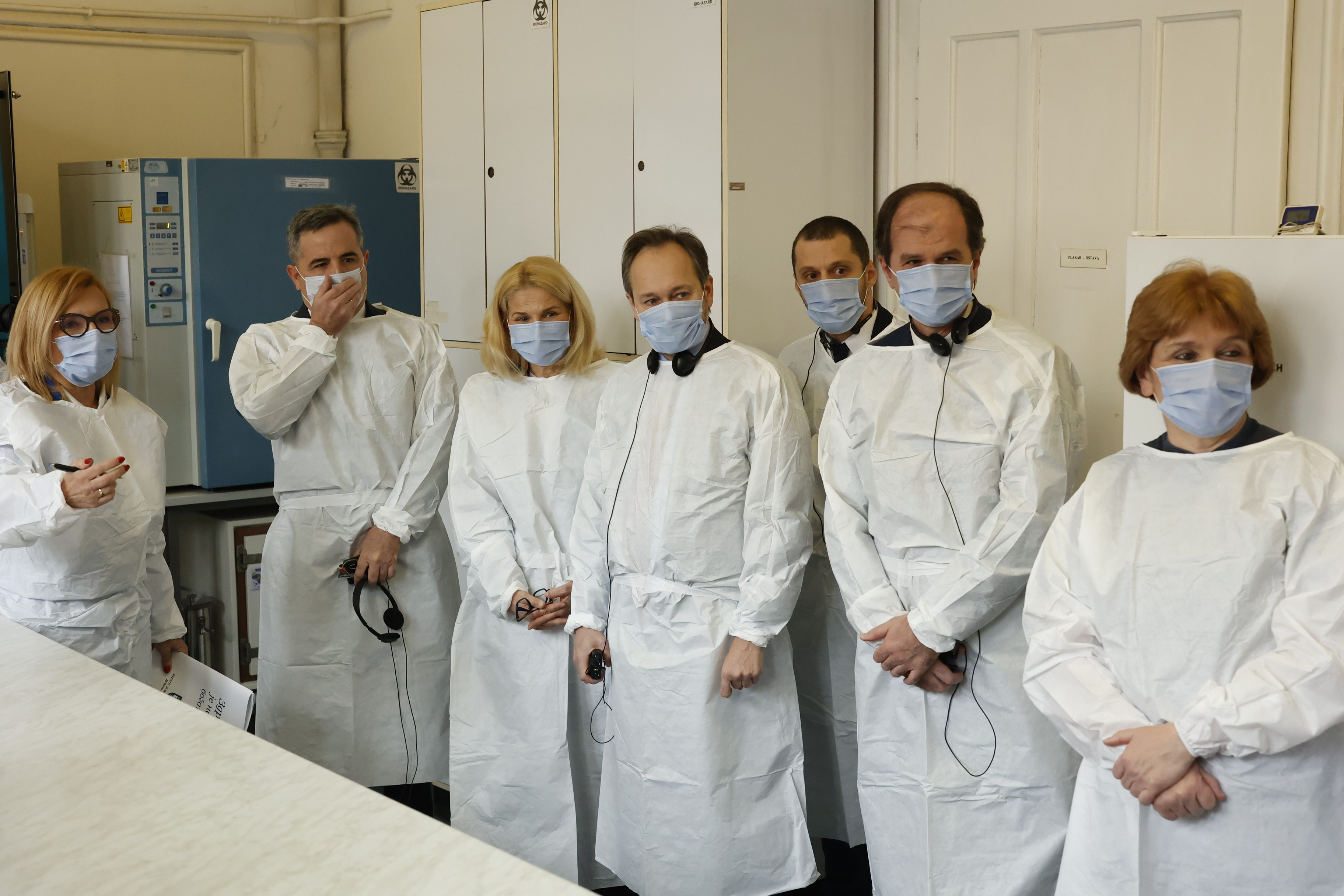EU contributes 12 million euros to assist and enable healthcare institutions to effectively respond to potential public health threats
Strengthening preparedness of the health system for crisis
February 5, 2024

Belgrade, February 5, 2024 - To assist and enable healthcare institutions to effectively respond to potential public health threats, the European Union (EU) has contributed 12 million euros to support a new initiative implemented by the United Nations Development Programme (UNDP) and the World Health Organization (WHO), in partnership with the Ministry of Health. The main activities of this initiative were presented today at the Institute for Public Health of Serbia "Dr Milan Jovanovic Batut".
“The outcomes of this initiative will advance the healthcare system at various levels. We will ensure improved and modernized laboratories, better data management, patient health records will be modernized, and an emphasis will be placed on better preparedness for healthcare emergencies. Health professionals deserve to have the most recent data and the best equipment so they can do what they do best: cure people and save lives," said H.E. Emanuele Giaufret, Ambassador and Head of EU Delegation in Serbia.
Ambassador Giaufret added that this is only a part of the EU's support for the health sector. In the last 20 years, the European Union has provided 570 million euros in grants and loans to the health system in Serbia. Thanks to this, hospitals, laboratories, public health institutes, and blood transfusion centers have been equipped. Another important recent project is the modernization of the Military Medical Academy (VMA) energy system, as well as pandemic support for purchasing protective masks and vaccines.
Minister of Health Danica Grujičić pointed out that such projects are particularly significant for Serbia as they bring it closer to EU standards in terms of monitoring and controlling infectious diseases, as well as the resilience of the public health system. She added:
“All of us, our entire society, all citizens, need to be aware of the time in which we live in, a time of global challenges that spares no one. Therefore, it is necessary to network, coordinate, and synchronize all those who are ready to change things for the better so that all those skills and knowledge gained through such projects produce synergy that will enable us to have a reliable and secure health system, both in regular and emergency circumstances. Another synergistic point, is the digitization of the health system that will open a completely new era in healthcare system in Serbia."

Officials on a tour of the laboratory at the Batut Institute of Public Health
According to Minister Tanja Miscevic, the Ministry of European Integration is here to help translating the ideas for improving healthcare in Serbia into strategic priorities of the Government that can be funded by EU funds.
“The envisaged 12 million euros shall be used to renew and modernize laboratories in Belgrade, Nis and Kragujevac, and we also discussed the possibility of further digitization and use of artificial intelligence to further improve their work. Moreover, by 2026, 150 municipalities will be better prepared to respond to emergencies. This will result from both employee training in health centers and broader public information. The improvement of the health care system is important for the negotiation process, but even more critical is the protection of public health of all people on the territory of Serbia,” emphasized Minister Miscevic.
The event included a tour of the referential microbiological laboratory at the Institute "Batut". It is one of a total of 35 microbiological laboratories of public health institutes in Belgrade, Nis and Kragujevac that will be reconstructed and equipped within this initiative in accordance with WHO microbiological safety standards.
“To improve prevention and increase the readiness of healthcare workers to protect the health of citizens in crises, whether caused by human or natural factors, we will upgrade the existing Disaster Risk Registry with public health risk data. In this way, all competent institutions will be able to plan, foresee and monitor the development of emergencies that have implications for public health," said Yakup Beris, UNDP Resident Representative in Serbia.
The UNDP and WHO will work together to improve the existing health information system so citizens can receive the most efficient health services on a daily basis and doctors can access all the necessary information about the patient's health status more easily.
“Emergencies cannot always be predicted, but what we can do is prepare the system to respond to them. In this very important project the EU supports, we will protect the health of the Serbian population by investing in readiness of the health system, which at the same time is a huge contribution to the economic growth of the country. Although it is true that health is not everything, we all know that without health we have nothing,” concluded Fabio Scano, WHO Representative in Serbia.
This event was organized within the framework of the "EU for Healthcare in Serbia" project, which is supported by the EU and implemented by UNDP and WHO, in partnership with the Ministry of Health.

 Locations
Locations